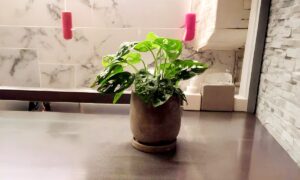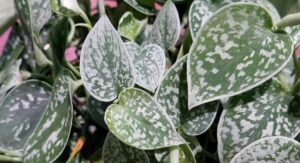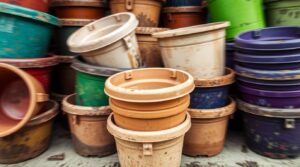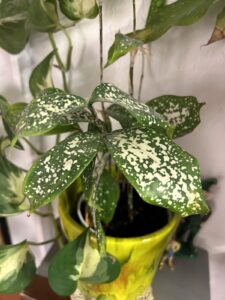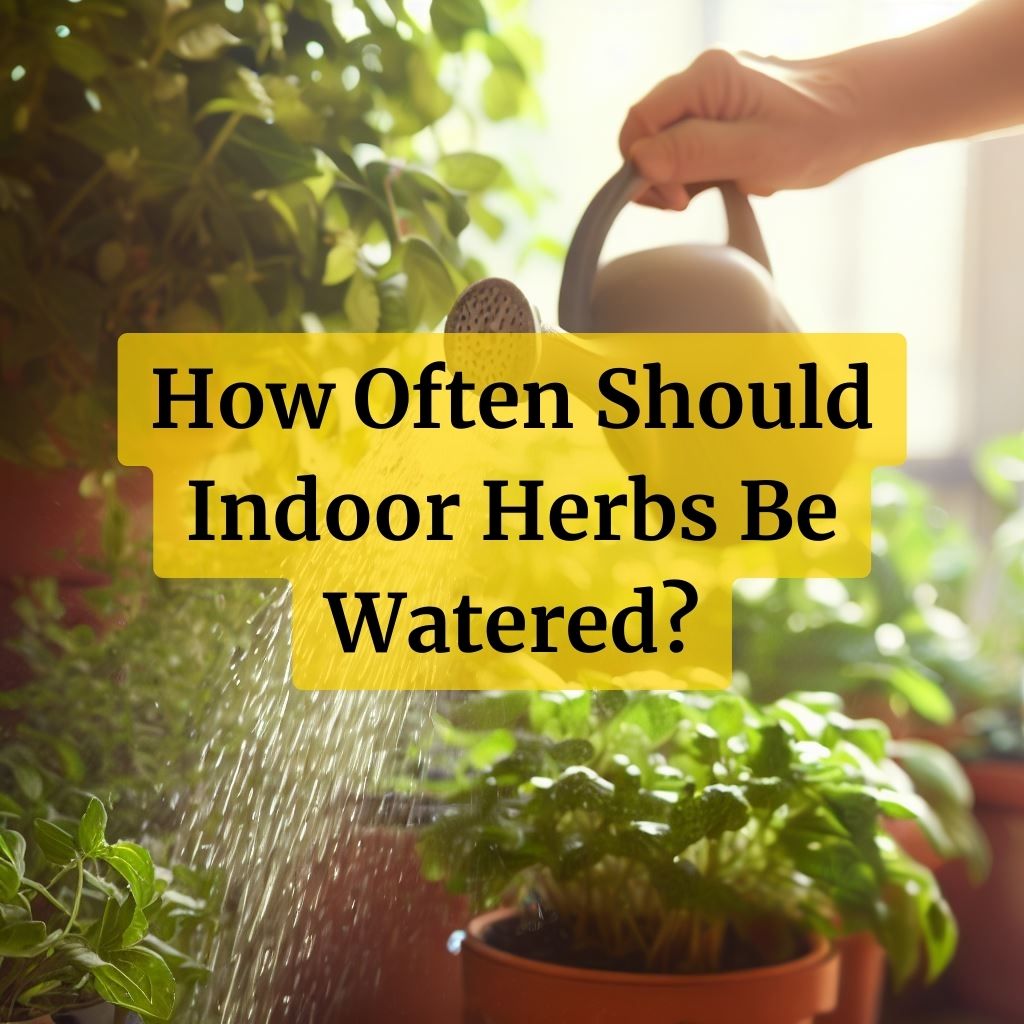
How often should you water your indoor herb garden? Before we get into the nitty-gritty details, let’s emphasize the significance of proper watering for your indoor herbs. Just like any living organism, herbs need water to survive and flourish. However, the tricky part lies in finding the right balance. Overwatering can lead to root rot and other issues, while underwatering can result in parched, unhealthy herbs. The key is to understand your herbs’ specific needs and adapt your watering routine accordingly.
Understanding Your Herbs
One size does not fit all when it comes to herb care. Different herbs have varying requirements based on their origin, size, and growth patterns.
Here’s a breakdown of some common indoor herbs and their specific watering needs:
Leafy Herbs: Keep It Moist, Not Soggy
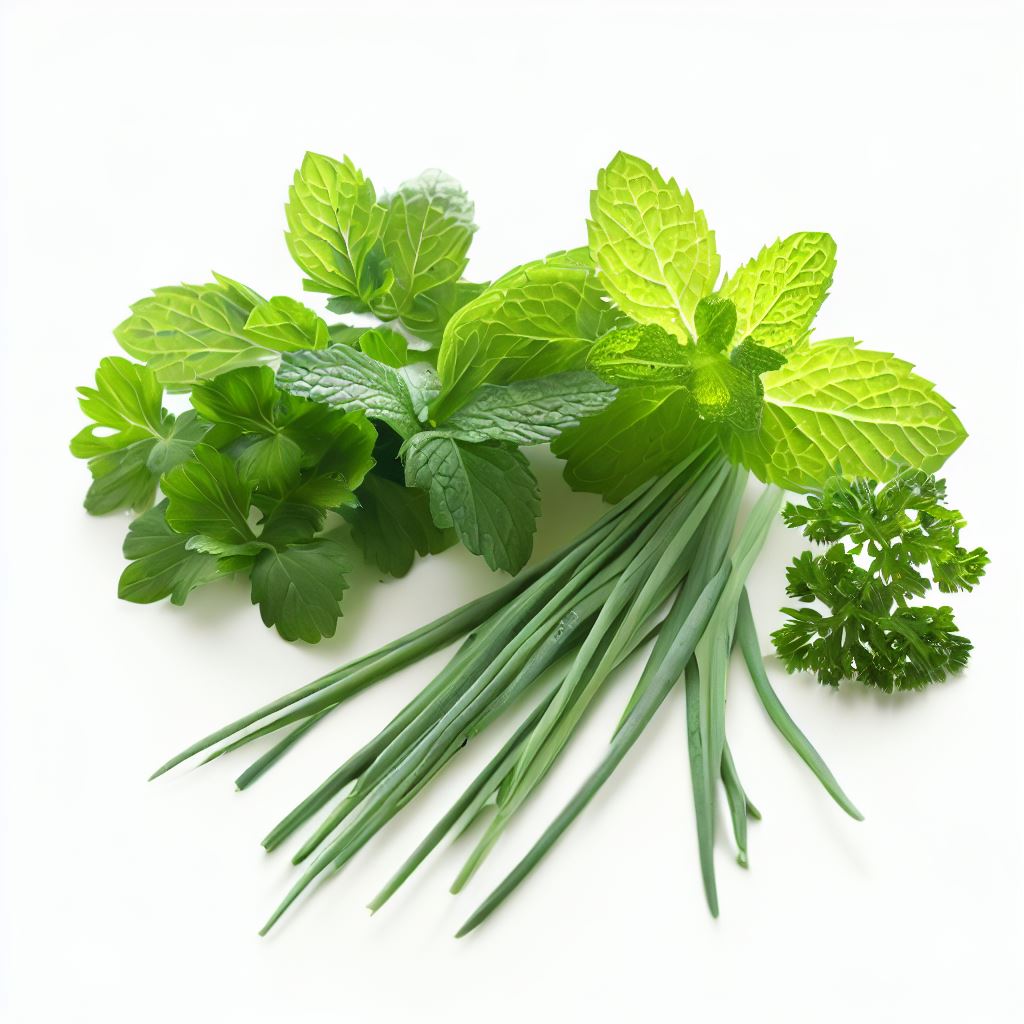
Leafy herbs like mint, parsley, and chives thrive when the soil is consistently moist but not waterlogged. Here’s a general guideline: water them every 2-5 days. Remember, it’s essential to touch the soil with your fingers to gauge its moisture level. If it feels dry about an inch below the surface, it’s time to water.
Mediterranean Herbs: A Weekly Treat
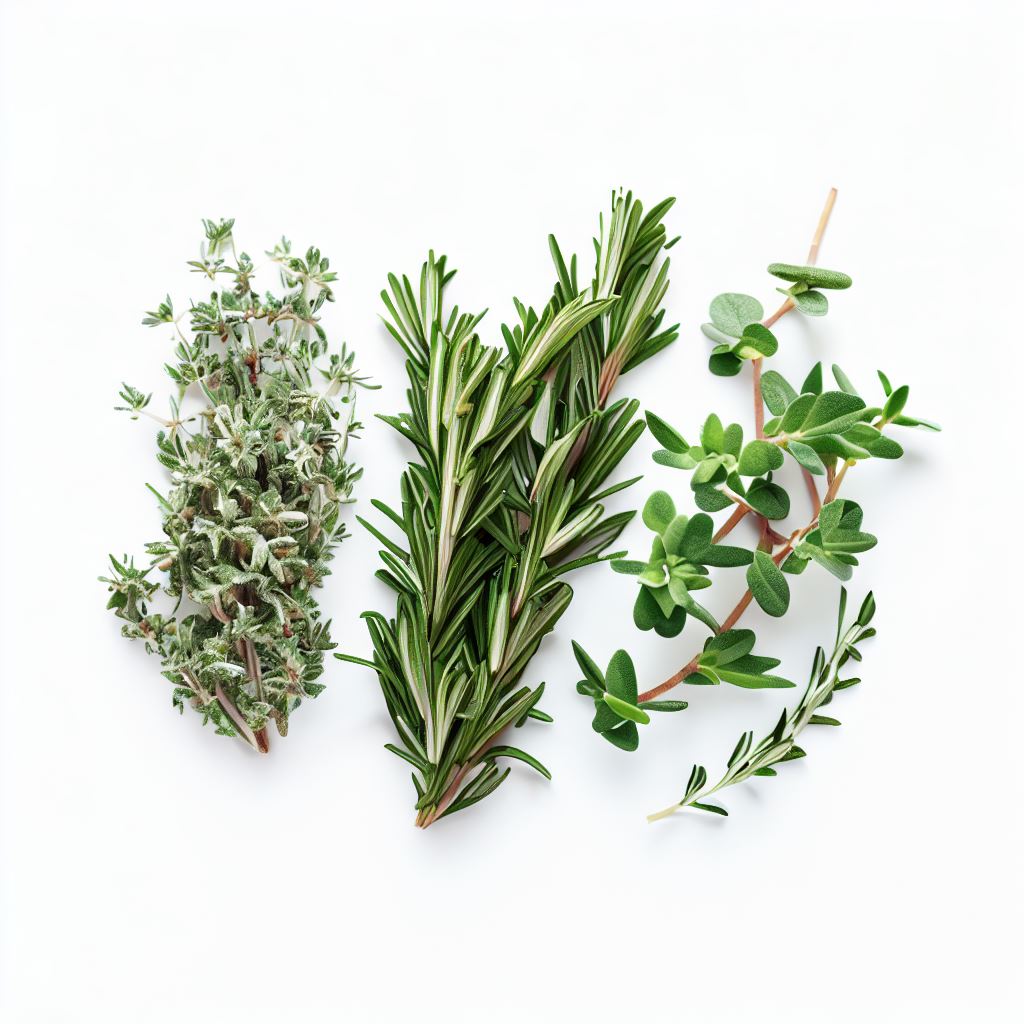
Mediterranean herbs such as rosemary, thyme, and oregano prefer a slightly drier environment. Water them once a week during the first four weeks of planting to establish strong root systems, then reduce the frequency to every 10-14 days. These herbs hail from regions with hot, arid climates, so a light hand with the watering can is the way to go.
Basil and Cilantro: Consistent Moisture
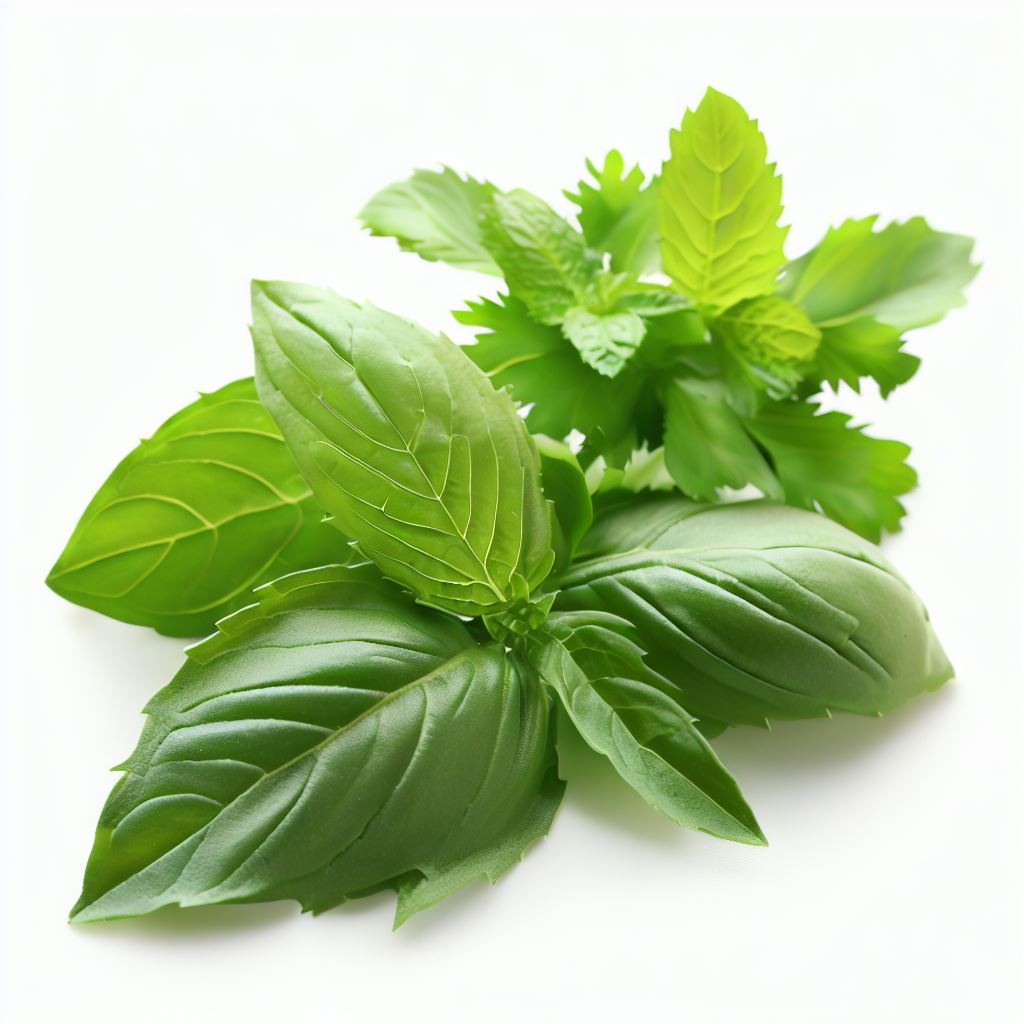
Basil and cilantro are kitchen staples loved for their flavor-enhancing qualities. To keep them thriving indoors, water them every 5-7 days. These herbs appreciate consistent moisture, but it’s crucial to avoid waterlogged soil. Ensure your pots have proper drainage to prevent any excess water from accumulating at the bottom.
Outdoor Annual Herbs: Rainfall-Dependent
If you grow annual herbs indoors but plan to move them outdoors during the warmer months, their watering needs can change. Water them indoors every 5-7 days or as needed. Once they transition to your outdoor garden, their watering schedule may become rainfall-dependent. Keep an eye on the weather and adjust your watering routine accordingly.
Factors Influencing Herb Watering
Now that you have a grasp of the general guidelines for different herb types, let’s explore other factors that influence your indoor herb watering schedule.
Pot Size and Type
The size and material of your herb pots play a significant role in moisture retention. Smaller pots tend to dry out faster, requiring more frequent watering. Conversely, larger pots can hold moisture longer, reducing the need for constant attention. Choose pots with drainage holes to prevent waterlogging.
Soil Composition
The type of soil you use also affects how often you should water your herbs. Well-draining potting mixtures, specifically formulated for herbs, are your best bet. These mixtures provide proper aeration for the roots and help maintain the ideal moisture balance.
Environmental Conditions
Environmental factors like temperature, humidity, and sunlight can impact your herb garden’s water needs. During hot, dry spells, your herbs may require more frequent watering. In contrast, cooler and more humid conditions can prolong the time between watering sessions.
Herb Growth Stage
Consider the growth stage of your herbs. Newly planted herbs may require more attention initially to establish their roots. As they mature, their watering needs can change. Pay attention to your herbs’ growth patterns and adjust your care routine accordingly.
We reached out to Dr. Olivia Verdant, a renowned horticulturist and herb expert, Dr. Verdant emphasizes who says: “Proper watering is the cornerstone of a healthy herb garden. Understanding your herbs’ individual requirements and the environmental factors at play is crucial. Over time, you’ll develop an intuitive sense of when your herbs need water.”
In the realm of indoor herb gardening, knowing how often to water your herbs is a skill that develops with time and experience.
By understanding your herbs’ unique needs, monitoring environmental conditions, and practicing attentive care, you can cultivate a thriving herb garden within the confines of your home.
Remember, it’s not just about keeping your herbs alive; it’s about helping them flourish and enrich your culinary creations.
Happy gardening!

